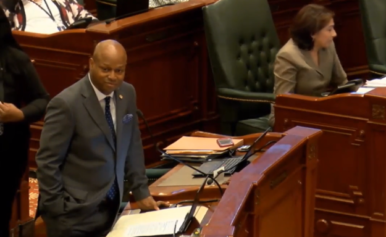In the latest skirmish in one of the most contentious issues of our time, a federal appeals court in Michigan ruled that the statewide ban on affirmative action at Michigan public universities that passed overwhelmingly in 2006 is unconstitutional because it places a greater burden on minorities to make their case by statewide referendum.
In a close 8-7 vote, the appeals court ruled that Michigan’s Proposal 2 should be invalidated because the ballot initiative is a form of “political manipulation” that placed excessive burdens on minorities. The proposal was by voters in November 2006 by 58 percent to 42 percent.
“We conclude that Proposal 2 targets a program that inures to the benefit of the minority and reorders the political process in Michigan in a way that places special burdens on racial minorities,” Judge R. Guy Cole wrote in the 36-page majority opinion.
The U.S. Supreme Court will be ruling this term on the contentious issue of affirmative action in college admissions by reviewing the program in place at the University of Texas, which affirmative action proponents fear will be ruled discriminatory by the court—effectively shutting down affirmative action at public universities across the country.
The issue of affirmative action has become a third rail of national politics in America, eliciting such heightened emotions on both sides that most people decline to speak about it in mixed company.
The Supreme Court has considered affirmative action cases twice in the past 35 years, in both cases deciding that race may be a factor in determining college admissions as long as there aren’t any racial quotas used. But this time the court seems poised to strike down all uses of affirmative action.
The case at the Supreme Court involves an honor roll student who played the cello and was rejected from the University of Texas, ultimately enrolling at Louisiana State University. She said she “dreamt of going to the University of Texas ever since the second grade” but didn’t get in, she contends because she’s white. She says people in her high school class with lower grades and similar activities were admitted, and “the only difference between us was the color of our skin.”
With the case in Michigan, dissenting judges on the appeals court said the majority’s decision stands the constitutional principle of equal protection and equal treatment on its head.
“For the first time, the presumptively invalid policy of racial and gender preference has been judicially entrenched as beyond the political process,” wrote Judge Julia Smith Gibbons in a 16-page dissent.
But the Michigan case differs from the University of Texas case in that it does not involve whether race-based admissions programs violate the constitution but rather whether the act of amending Michigan’s constitution to ban race-based admissions violated the equal protection rights of minority proponents of race-based admissions.
In the majority opinion, they cited two US Supreme Court precedents from 1969 and 1982 for the proposition that Michigan’s state-wide ban created an unconstitutional burden on minority groups and minority support of affirmative action programs.
The judges said that it must be left up to school officials to decide whether race-based policies would continue or stop. They said a policy debate at the school level would better enable minority groups and other supporters of race-based admissions to effectively present their argument.


